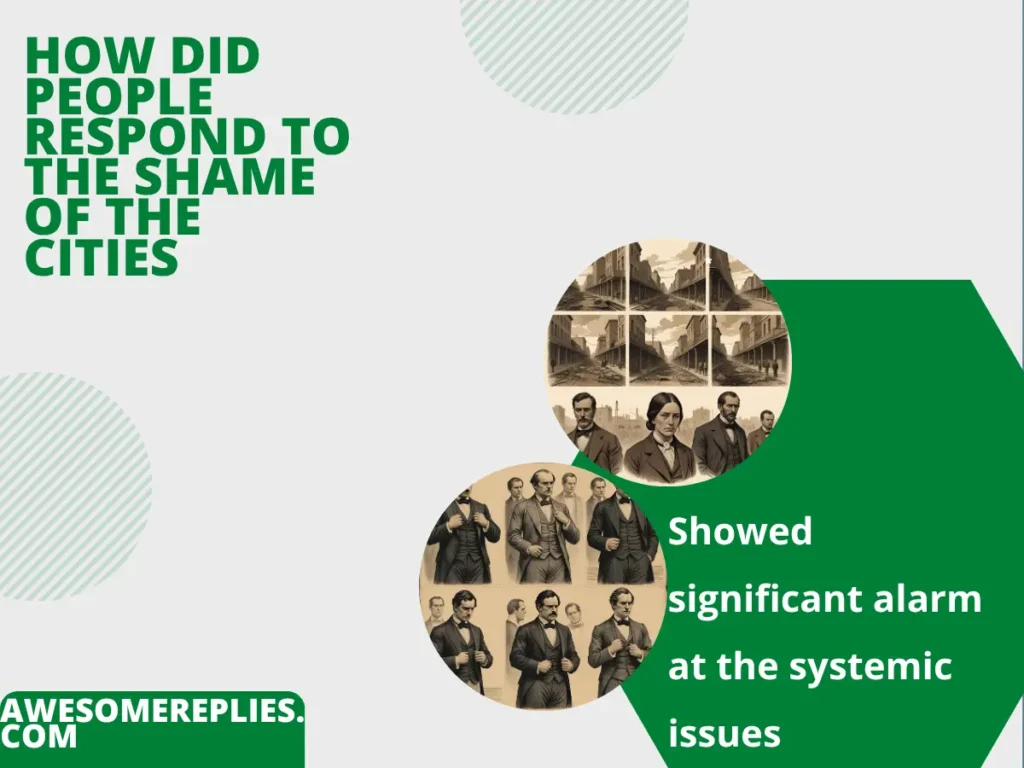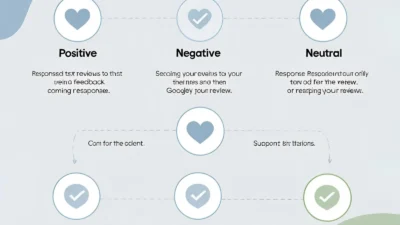Struggling to find the perfect way to describe how people reacted to The Shame of the Cities?
You’ve likely searched for just the right phrase to capture the public’s response to Lincoln Steffens’ groundbreaking 1904 book, which exposed urban corruption in America.
Whether you’re writing a history paper, preparing a presentation, or simply curious, this article solves your problem.
Here, you’ll find clear, varied ways to express the public’s reaction, tailored to different contexts.
From formal essays to casual discussions, every situation calls for a unique way to convey how this book shook society.
Let’s dive into the diverse expressions you can use to describe the response to The Shame of the Cities.
Formal Ways to Say How People Responded to The Shame of the Cities

When writing essays, reports, or academic papers, formal language conveys precision and respect for the subject. Below are over 30 formal alternatives to describe how people reacted to Steffens’ exposé of municipal corruption:
- Expressed profound shock at the revelations
- Demonstrated widespread outrage over the disclosed corruption
- Voiced strong condemnation of the exposed practices
- Exhibited deep concern regarding urban governance
- Showed significant alarm at the systemic issues
- Articulated dismay over the moral decay
- Conveyed intense disapproval of the findings
- Registered acute indignation at the injustices
- Manifested considerable unrest over the disclosures
- Expressed fervent criticism of city officials
- Displayed notable agitation over the reported abuses
- Evinced strong perturbation at the revelations
- Demonstrated keen awareness of the issues
- Voiced resolute opposition to the corrupt systems
- Exhibited marked consternation at the exposure
- Expressed earnest concern for reform
- Showed resolute indignation at the practices
- Conveyed deep perturbation over the findings
- Articulated grave disapproval of the corruption
- Registered profound disquiet over the revelations
- Demonstrated firm resolve to address the issues
- Expressed staunch criticism of municipal governance
- Voiced serious apprehension about urban decay
- Showed deep disquietude over the exposures
- Evinced strong resolve for systemic change
- Conveyed acute concern for public welfare
- Expressed vigorous condemnation of the practices
- Demonstrated steadfast commitment to reform
- Voiced deep unease about the revelations
- Exhibited resolute determination to combat corruption
- Showed profound disturbance at the findings
- Articulated strong advocacy for transparency
Informal Ways to Say How People Responded to The Shame of the Cities
In casual conversations or informal writing, you want phrases that feel natural and relatable. Here are over 30 informal ways to describe how people reacted to The Shame of the Cities:
- Got totally shocked by the book
- Were super mad about the corruption
- Freaked out over the dirty secrets
- Couldn’t believe what they read
- Went nuts over the shady stuff
- Were pretty upset about the mess
- Got all worked up about it
- Thought it was totally wild
- Were blown away by the exposé
- Felt really ticked off
- Were stunned by the news
- Got confused angry about the corruption
- Found it hard to swallow
- Were shook by the revelations
- Thought it was a real eye-opener
- Got all riled up
- Were totally floored
- Felt super annoyed about it
- Were like, whoa, that’s bad
- Got pretty heated about the book
- Were mind-blown by the truth
- Felt kinda sick about it
- Were all, no way, really
- Got real mad at the officials
- Were totally thrown by it
- Thought it was straight-up awful
- Were buzzing about the scandal
- Felt really put off by it
- Were like, that’s messed up
- Got all hot under the collar
- Were totally gobsmacked
- Found it super sketchy
Idiomatic Ways to Say How People Responded to The Shame of the Cities
Idiomatic expressions add color and flair, capturing reactions in a vivid, culturally resonant way. Here are over 30 idiomatic phrases for how people responded to The Shame of the Cities:
- Hit the roof over the corruption
- Went through the floor with shock
- Had their jaws drop
- Were up in arms about it
- Saw red at the revelations
- Had their minds blown
- Were beside themselves with anger
- Got their dander up
- Were knocked for a loop
- Had their eyes pop out
- Were fit to be tied
- Went off the deep end
- Had steam coming out their ears
- Were thrown for a curve
- Got their knickers in a twist
- Were gobsmacked by the news
- Had their feathers ruffled
- Were taken aback big time
- Got all hot and bothered
- Were left speechless
- Had their socks knocked off
- Were hopping mad
- Got their goat big time
- Were floored by the truth
- Had their heads spinning
- Were rattled to the core
- Got all bent out of shape
- Were stunned silly
- Had their world rocked
- Were mad as a wet hen
- Got their blood boiling
- Were bowled over by it
Professional Ways to Say How People Responded to The Shame of the Cities
In workplace settings like emails, meetings, or reports, professional phrases strike a balance between formality and clarity. Here are over 30 professional alternatives to describe the response to The Shame of the Cities:
- Expressed significant concern over the findings
- Voiced strong disapproval of the practices
- Highlighted deep unease about the revelations
- Noted considerable alarm at the corruption
- Conveyed firm opposition to the issues
- Articulated serious concerns regarding governance
- Demonstrated resolute concern for reform
- Expressed keen disapproval of the exposures
- Voiced measured criticism of the officials
- Showed notable concern for transparency
- Conveyed steadfast commitment to change
- Expressed clear dismay at the revelations
- Highlighted firm resolve to address corruption
- Noted strong apprehension about the findings
- Voiced earnest advocacy for reform
- Demonstrated clear concern for public trust
- Expressed measured indignation at the issues
- Conveyed deep commitment to accountability
- Showed firm disapproval of the practices
- Articulated resolute support for transparency
- Voiced clear concern over systemic issues
- Expressed strong resolve for governance reform
- Highlighted deep concern for ethical standards
- Noted firm commitment to addressing abuses
- Conveyed serious concern for public welfare
- Demonstrated clear resolve for systemic reform
- Expressed measured concern for accountability
- Voiced strong support for ethical governance
- Showed deep concern over the exposures
- Articulated firm commitment to public trust
- Highlighted resolute opposition to corruption
Conclusion
Choosing the right phrase to describe how people responded to The Shame of the Cities matters.
Whether you’re crafting a formal essay, chatting with friends, or presenting in a meeting, the way you express reactions shapes your message.
With over 120 options across formal, informal, idiomatic, and professional contexts, you now have the tools to communicate clearly and effectively.
Practice these phrases to make your writing or speech engaging and precise.
Start using them today to capture the public’s shock, anger, and call for reform sparked by Steffens’ powerful exposé.




